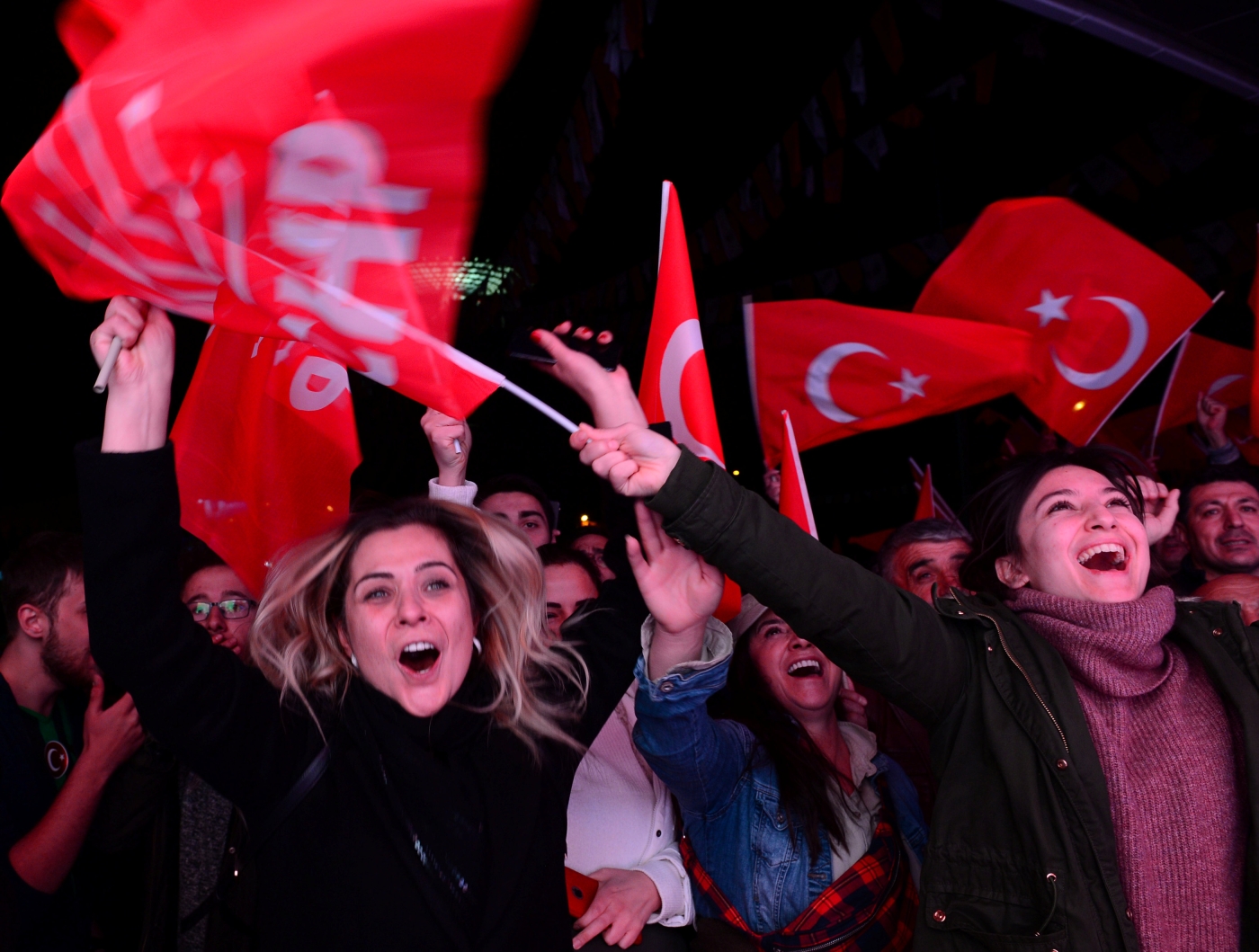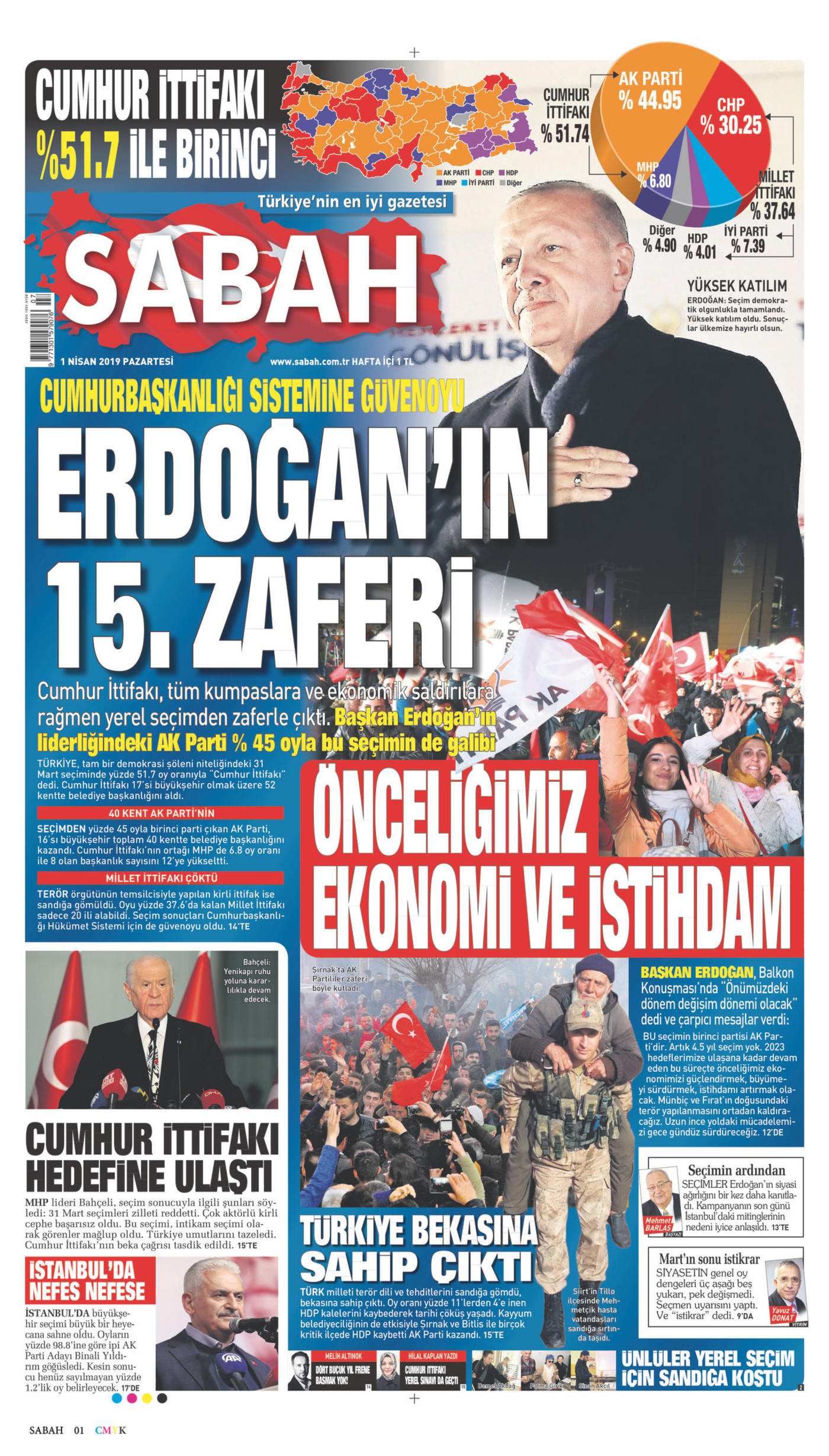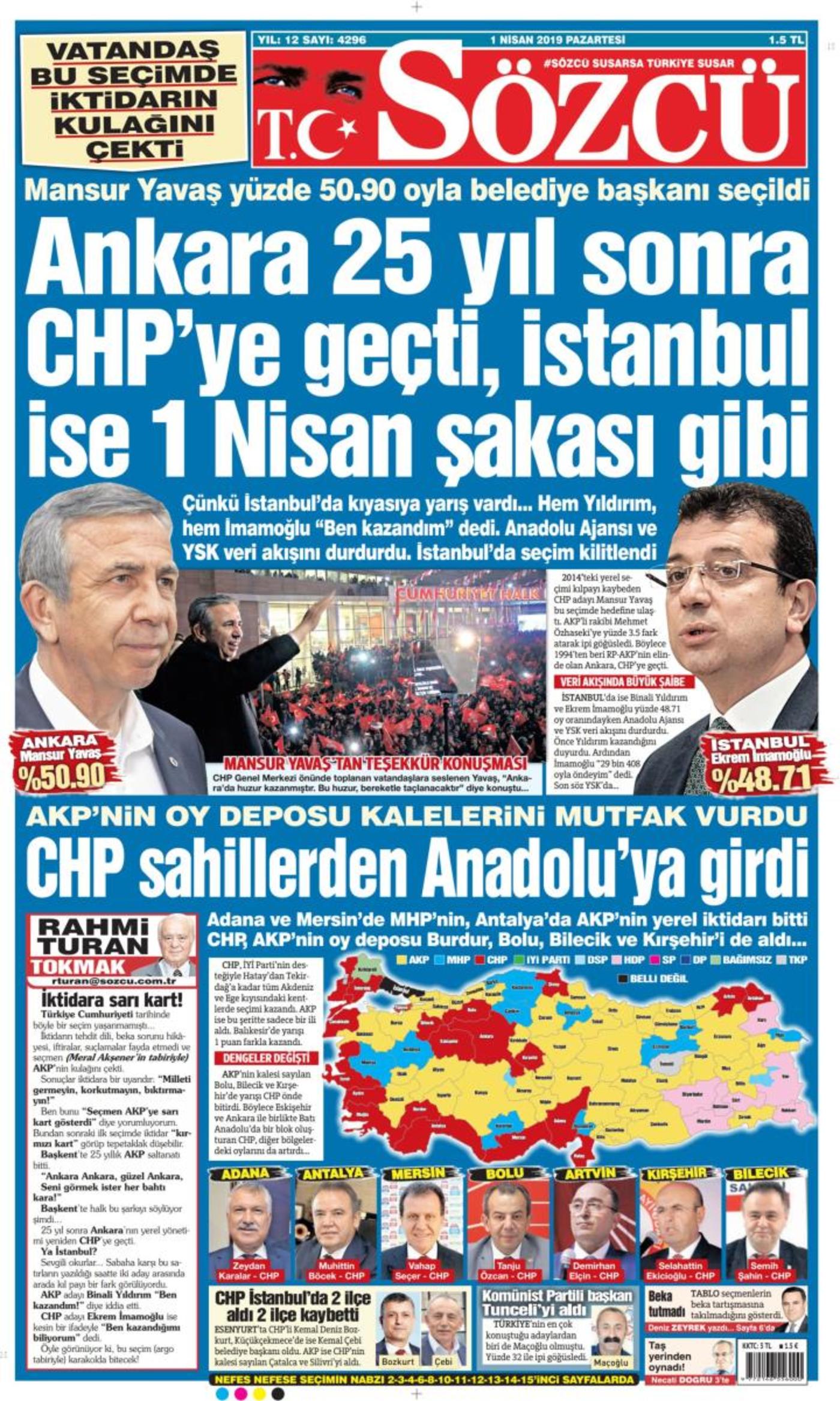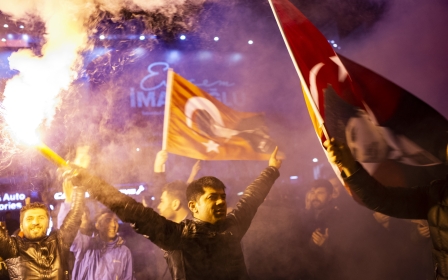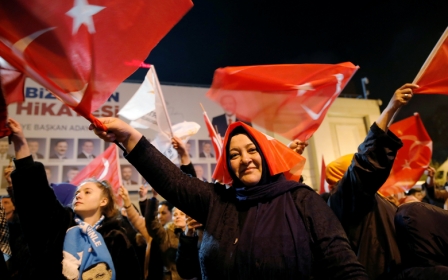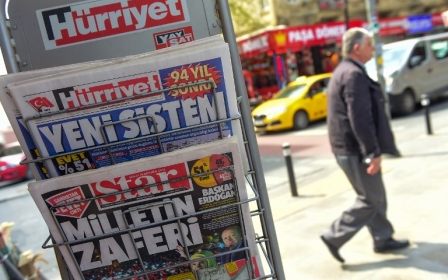Turkish media divided on elections: A 'yellow card' for Erdogan or a victory?
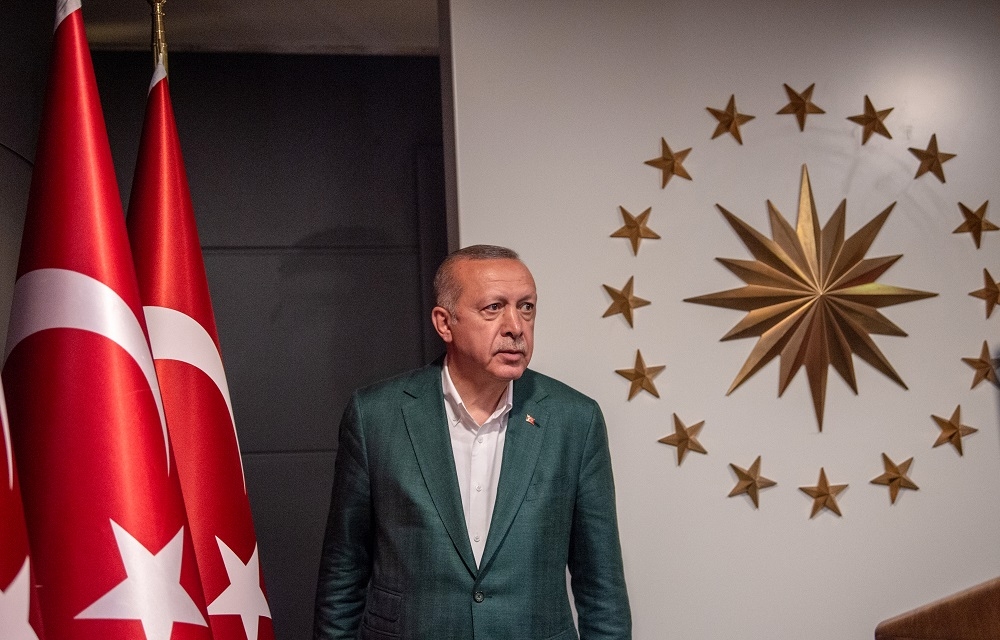
Turkey's media appears to be as divided as the wider country by the outcome of Sunday's local elections, with pro-government newspapers claiming victory for President Recep Tayyip Erdogan even as opposition commentators said that the electorate had handed him a "yellow card".
According to unofficial results, Erdogan's ruling Justice and Development Party (AKP) lost 14 cities, although the party did not stand candidates in three of those, leaving the way clear for candidates from the ultra-nationalist Nationalist Movement Party (MHP), with whom it campaigned under the banner of a "People's Alliance".
The AKP also won three cities in the country’s Kurdish majority southeast from the People’s Democracy Party (HDP) .
But the opposition’s “Nation Alliance”, made up of the main opposition Republican People's Party (CHP) and the nationalist IYI party, proved resilient against the government's candidates and reclaimed key territories that have been under the control of Erdogan-affiliated parties for more than two decades.
The CHP gained Ankara, the capital, from the AKP, while preliminary results in Istanbul indicate that CHP candidate Ekrem Imamoglu is on course to end conservative rule in the city once administered by Erdogan in 1990s as mayor, with a winning margin equivalent to the capacity of a small football stadium.
Turkish government-aligned media nonetheless declared the Erdogan-led coalition as the victor.
'Erdogan's 15th victory'
Sabah, which is owned by an Erdogan supporter and considered to be close to the government, described the election results as “Erdogan’s 15th victory,” referring to the president's string of election victories over the course of three decades in which the AKP has established itself as the dominant force in Turkish politics.
The newspaper said the results were a vote of confidence in the new presidential system introduced after a referendum last year. The front page also underlined the fact that Erdogan’s People's Alliance received the majority of the votes with 51.7 percent.
Hurriyet, which was recently purchased by a government-friendly businessman, also put forward Erdogan’s balcony speech in which he suggested that he had won his 15th vote. However, Abdulkadir Selvi, a veteran conservative columnist for the paper, said voters had chosen stability while warning the government of its shortcomings.
Other government-friendly outlets such as Aksam, Star, Takvim and Yeni Safak published front pages that did not mention the AKP's major losses in the municipalities.
Yet all of them referenced the HDP's defeat in five cities in the Kurdish-majority southeast, which is considered the pro-Kurdish party's heartland.
“Ballot box slap to HDP in the east,” the Star daily said on the front page.
'Warning to one man'
Turkey’s opposition outlets were united, on the other hand, in interpreting the results as a blow to Erdogan’s rule.
The secularist Cumhuriyet daily front page read: “Warning to one man.”
The newspaper underlined the fact that Erdogan couldn’t say his party won the elections because the number of major cities controlled by the AKP had dwindled.
Sozcu, Turkey’s bestselling opposition paper with a secularist and nationalist outlook, hailed the opposition winning control of Ankara for the first time in 25 years, and called the contested results in Istanbul “like an April Fools’ Day joke".
A notable analysis by the newspaper was the CHP’s success in moving beyond coastal areas and winning provinces in heartland Anatolia, once considered the AKP's powerbase.
“This is a yellow card to the government,” wrote Rahmi Turan, the lead columnist for Sozcu.
Leftist daily Birgun had a bold front page headline, saying “People said 'halt' to pressure, violence and threats” by the government.
The paper also featured a story on the victory of Turkey’s first-ever communist city mayor in Tunceli. Interestingly, the conservative Star daily’s columnist Ardan Zenturk also hailed communist mayor Fatih Mehmet Macoglu for his courage.
Turkish television channels were also divided in their coverage. The government-aligned A Haber news channel had a celebratory tone following the results.
But television viewing figures suggested that many viewers had turned to Fox TV, one of the few private news channels to take a critical stance towards the government, for their election night coverage, with six of the night's most watched programmes screening on the network.
Middle East Eye propose une couverture et une analyse indépendantes et incomparables du Moyen-Orient, de l’Afrique du Nord et d’autres régions du monde. Pour en savoir plus sur la reprise de ce contenu et les frais qui s’appliquent, veuillez remplir ce formulaire [en anglais]. Pour en savoir plus sur MEE, cliquez ici [en anglais].


